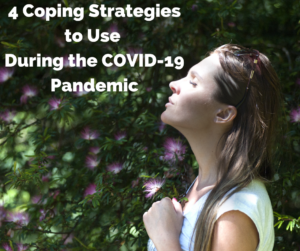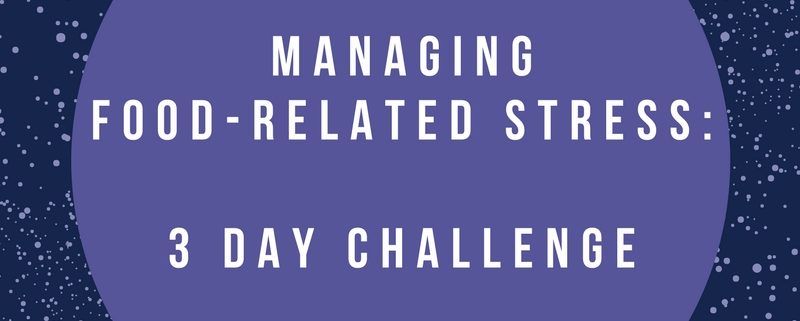4 Coping Strategies to Use During the COVID-19 Pandemic
 This is a difficult time for all of us. It’s the unknown. It’s scary. What will happen? How many people will be affected? How will my life change? What about my family, my elderly parents…
This is a difficult time for all of us. It’s the unknown. It’s scary. What will happen? How many people will be affected? How will my life change? What about my family, my elderly parents…
Of course, I’m talking about the Coronavirus pandemic that we are living through.
I’m not going to go into a whole list of things to decrease your risk of contracting COVID-19. I’m sure your inbox is full of those emails. And quite frankly, they make me even MORE nervous.
So in today’s blog, I want to focus on how you’re dealing with it emotionally. I received several messages from friends, family and clients who are turning to food to soothe their anxious feelings. The problem with doing this is that after they eat, they feel bad about themselves.
There are other ways to deal with your difficult emotions during these uncertain times. Read on…
What Are You Feeling?
The first step to managing your feelings without turning to food is to PAUSE and identify what you are feeling. Are you anxious, nervous, scared, depressed, lonely etc.? It’s important to put your finger on the exact emotion so you can figure out how to meet your true needs.
What Do You Need?
Once you’ve named the feeling (write it down, say it out loud…), now ask yourself what you need to manage that feeling. Perhaps it’s connecting with a friend or loved one. Or, maybe it’s a little fresh air to clear your mind. If you’ve been stuck in the house, then stepping out onto the front porch to breathe in the air and allow the sunshine to hit your face may make a world of a difference for you.
Take Action
Once you’ve identified your feelings and how you might be able to fill the real need you have (because it’s not food), now you’ll want to take action. It’s not enough to think about doing something, you must pull up the strength to actually do it.
4 Coping Strategies
Here are some things you can do to cope with your difficult emotions during this uncertain time:
- Deep Breathing: For me, this is number one. Whenever I feel some anxiety coming on, I stop what I am doing, close my eyes and breath in for a count of 4 and breath out for a count of 4. Try it!
- Meditate: Even if you’ve never meditated before, give it a shot. Download one of many apps to your phone, such as Calm or Headspace, and put on one of the short meditations. It’ll help you calm down in the moment.
- Journal: Take out a pen and paper (if you don’t have a pretty journal) and allow yourself to write, freeform. No editing – just let your thoughts and feelings float onto the paper. It’s so important to get out of your head and by writing, you are releasing these difficult emotions.
- Call a Friend: With the new regulations of self-quarantine, curfews and being told to “stay home”, it can get very lonely. If you are feeling alone, pick up the phone and call a friend or loved one. There’s nothing like hearing the voice of someone you care about to help you get through this period. It’s not the same as texting, I promise!! Better yet, Facetime with each other so you can see one another and give each other a virtual hug as well.
I hope these suggestions have helped! I’ll be taking my own advice as well.
Please note, if you are having trouble coping, please reach out to a therapist or call 911. There is help for you!





